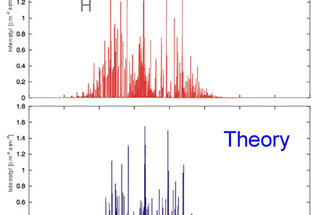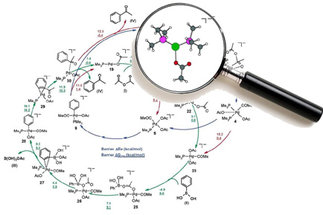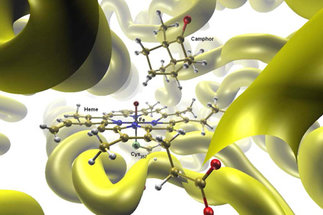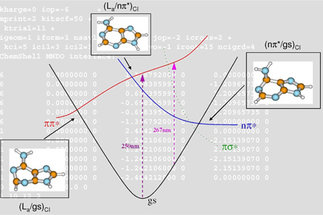Theoretical Chemistry
The central field of research in the Thiel group (1999 - 2018) were Theoretical and Computational Chemistry, in particular Quantum Chemistry. The group focused on theoretical developments that extend the scope of computational methodology, especially for large molecules. The group applied theoretical methods to study specific chemical problems, mostly in close cooperation with experimental partners. The activities of the group covered a broad methodological spectrum:
> ab initio methods
> density functional theory
> semiempirical methods
> combined quantum mechanical/molecular mechanical methods
Applications from these areas addressed the rovibrational spectra of small molecules, catalytic reactions of transition metal compounds, excited-state dynamics, and enzymatic reactions. They thus ranged from accurate calculations on small molecules to the approximate modeling of very complex systems with thousands of atoms.
The pioneering contributions of the Thiel group have, in multiple way, enriched not only theoretical chemistry. The methods developed by the Thiel group continue to be intensely used world-wide for the solution of chemical research problems. The MNDO program developed by the Thiel group can be obtain in an „open source“ version. Interested parties please contact Dr. Axel Koslowski.
Research Topics:
News until September 2019
Research Reports:
- Research Report Thiel 2017-2019 104.1 kB
- Research Report Thiel 2014-2016 2.96 MB
- Research Report Thiel 2011-2013 1.27 MB
- Research Report Thiel 2008-2010 640.25 kB
- Research Report Thiel 2005-2007 557.39 kB
- Research Report Thiel 2002-2004 304.85 kB
Links:
Organisations
Arbeitsgemeinschaft Theoretische Chemie
Computional Chemistry List
Deutsche Bunsengesellschaft
Deutsche Forschungsgemeinschaft
Gesellschaft Deutscher Chemiker
International Academy of Quantum Molecular Sciences
World Association of Theoretical and Computational Chemists
Software
ACCELRYS
ACES
ADF
ChemShell
Gaussian
MOLCAS
MOLPRO
Schrödinger
TURBOMOLE
ORCA
Conferences
ACS Meetings
CCL Conference List
GDCh Tagungen
Symposium
International Symposium on Theoretical and Computational Chemistry
Festschrift: Journal of Physical Chemistry A 2009, 113 (43)
Projects
RUB Solvation Science







